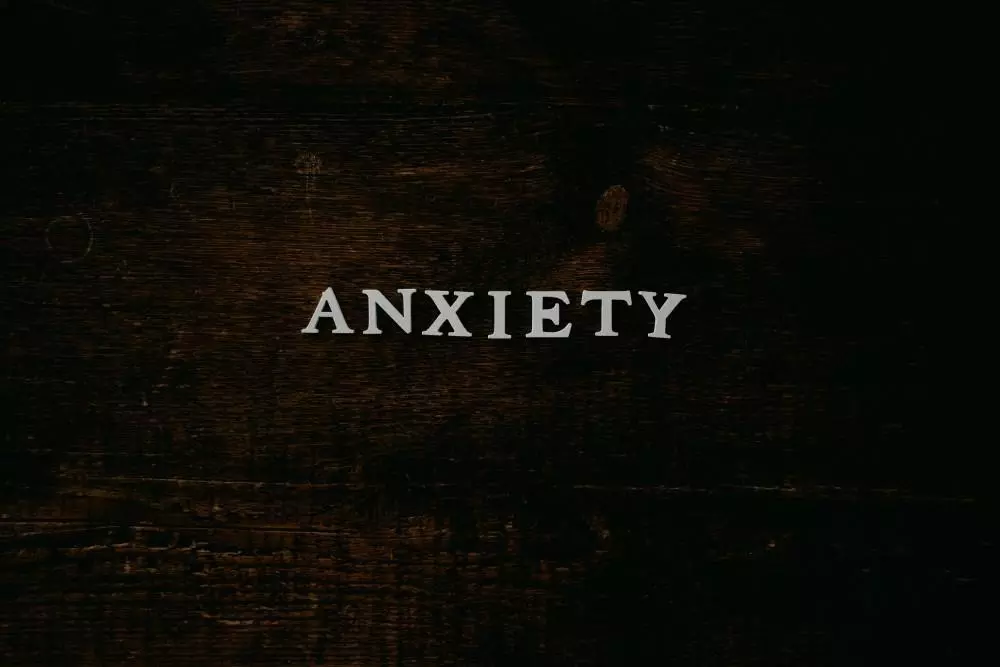Anxiety can make everyday activities difficult to complete and can worsen over time. Anxiety manifests in a variety of ways, including panic disorder, social anxiety, and phobia-related disorders. While progress has been made in bringing attention to anxiety, it still carries some social stigma. In fact, anxiety is one of the most common mood disorders in the country, affecting 18% of the United States population, specifically, 8% of children and teenagers and 17.3% of adults; that’s almost forty million people (Anxiety and Depression Association of America [ADAA], n.d.). Over the last few years, that number has increased significantly due to the global pandemic. According to the World Health Organization (WHO), anxiety and depression increased by 25% during the first year of the pandemic.
Have you ever felt restless, on edge, constantly worried, or experiencing unpredictable mood swings? If so, you may be experiencing Anxiety (National Institute of Mental Health [NIMH], n.d.). All too often, the word anxiety is too loosely used in its connotation. The perceived notions of anxiety include that it is overly generalized or that “everyone feels anxious when they are stressed” therefore, it is not as severe as it is made out to be and is easily used as an excuse. Stress has also become accepted as a very common experience among many. Those suffering from it may downgrade their anxiety because they feel misunderstood and may be less likely to ask for help (National Alliance on Mental Illness [NAMI], n.d.). These perceived notions and social stigmas have formed the taboo nature of general anxiety that now exists. A mood disorder diagnosis often instills the fear of social exclusion, isolation, and being treated differently by friends, family, or co-workers (Meek Ph.D., 2021). On the other end of the spectrum, frequently, societal expectations can lead to self-stigmatizing behavior expressed in negative attitudes towards oneself or internalized shame (American Psychiatric Association [APA], n.d.).
Stigma occurs in all aspects of society, whether at home, school, or the workplace. Two surveys were conducted by the McKinsey’s Center for Societal Benefit Through Healthcare. During the survey, employers were asked to list their top priorities for mental health. While increasing access to mental health was a top priority, reducing stigma was the lowest priority ranked, even though 75% of those employers acknowledged that mental health stigma exists in their office. Both home and school life affect young people equally. A study found that if families had negative attitudes and perceptions of mental illness at home, young people begin to self-stigmatize and internalize their shame. They then become more aware of how they are perceived by peers and teachers at school and are more likely to withdraw socially (Kranke et al., 2010, as referenced by Bowers et al., 2012). Social pressure to be accepted and conform to the norms of the previously mentioned facets of life (e.g., work, school, or home) can prove fatal. Sometimes, after years of feeling they can’t be helped, that they are weak, or feel embarrassment and shame, these feelings cannot be overcome (Bowers et al., 2012).
While enacting change and destigmatizing general anxiety is easier said than done and will take a lifetime to do, there is hope on the horizon regarding progressive treatments for anxiety, including ketamine. Ketamine aids in treating various anxiety disorders by promoting the regrowth of neurons in the prefrontal cortex (Eschner, 2022). Conventional treatments for anxiety disorders may require extended periods of time before taking effect and produce a lengthy list of side effects; moreover, the patient’s particular condition may be treatment-resistant (Shadli et al., 2018).
More research has been conducted specifically on Ketamine concerning depression. However, the recent change in the DSM-5 has added “Anxious distress” as a specifier in the definition of depression which will aid in discovering how Ketamine assists in treating the anxiety symptoms in anxious depression. This is significant because 50-60% of adults diagnosed with depression also have a history of anxiety (Banov et al., 2019). Patients who receive treatment for their anxious depression with only antidepressants often do not experience relief in anxiety symptoms. Recently, a study was conducted with patients in hospice care over a twenty-eight-day period. All patients experienced symptoms of depressive anxiety but were not formally diagnosed with the condition. The patients were treated with oral Ketamine and experienced rapid relief of anxiety symptoms within an hour and continued to feel improvement over the following week (Ray et al., 2016, as referenced by Banov et al., 2019).
Another study yielded positive results for a woman with severe panic attacks, agoraphobia, and generalized anxiety disorder treatment-resistant to previous antidepressants. She later experienced severe shoulder and neck pain due to a herniated disk and was treated with intravenous ketamine. Afterward, she was asked to take the Generalized Anxiety Disorder 7, a self-reported questionnaire, to gauge the severity of her anxiety symptoms. After being treated with Ketamine for the unrelated issue of pain, her scores increased significantly, and she did not experience any more panic attacks over ten weeks (Ray et al., 2016, as referenced by Banov et al., 2019).
There is still a lot of progress that needs to be made regarding reducing the stigma around general anxiety disorder and conducting more research on Ketamine as a current and future treatment. Avesta Ketamine and Wellness tailors treatments to each patient’s individual needs with the utmost care. If you are interested in learning more, please visit our website or request an appointment online.
Sources:
Anxiety Disorders. National Institute of Mental Health (NIMH). (n.d.). Retrieved May 3, 2022, from https://www.nimh.nih.gov/health/topics/anxiety-disorders
Banov, M et al. The Efficacy and Safety of Ketamine in the Management of Anxiety and Anxiety Spectrum Disorders: A Review of the Literature. CNS Spectrums, 1-12. doi:10.1017/S1092852919001238
Bowers, H et al. Stigma in School-Based Mental Health: Perceptions of Young People and Service Providers. The Association for Child and Adolescent Mental Health. (June 19, 2012). Retrieved May 3, 2022, from https://acamh.onlinelibrary.wiley.com/doi/10.1111/j.1475-3588.2012.00673.x
Covid-19 Pandemic Triggers 25% Increase in Prevalence of Anxiety and Depression Worldwide. World Health Organization (WHO). (n.d.). Retrieved May 3, 2022, from https://www.who.int/news/item/02-03-2022-covid-19-pandemic-triggers-25-increase-in-prevalence-of-anxiety-and-depression-worldwide#:~:text=Wake%2Dup%20call%20to%20all,mental%20health%20services%20and%20support&text=In%20the%20first%20year%20of,Health%20Organization%20(WHO)%20today.
Eschner, K. The Promises and Perils of Psychedelic Healthcare. The New York Times. (January 12, 2022). Retrieved May 3, 2022, from https://www.nytimes.com/2022/01/05/well/psychedelic-drugs-mental-health-therapy.html
Let’s Face It, No One Wants to Talk About Mental Health. McLean Hospital. (Harvard Medical School Affiliate). (n.d.). Retrieved May 3, 2022, from https://www.mcleanhospital.org/essential/lets-face-it-no-one-wants-talk-about-mental-health
Meek Ph.D., W. Overcoming Stigma for Generalized Anxiety Disorder. Very Well Mind. (January 18, 2021). Retrieved May 3, 2022, from https://www.verywellmind.com/overcoming-stigma-for-generalized-anxiety-disorder-1393170
Overcoming Stigma: Thee Strategies Toward Better Mental Health in the Workplace. McKinsey Quarterly. (July 23, 2021). Retrieved May 3, 2022, from https://www.mckinsey.com/industries/healthcare-systems-and-services/our-insights/overcoming-stigma-three-strategies-toward-better-mental-health-in-the-workplace#:~:text=Fewer%20than%20one%20in%20ten,mental%20or%20substance%2Duse%20disorders.
Shadli, S et al. Ketamine Effects on EEG During Therapy of Treatment-Resistant Generalized Anxiety and Social Anxiety. (2018). International Journal of Neuropsychopharmacology, 21(8), 717-724. https://doi.org/10.1093/ijnp/pyy032
Stigma, Prejudice, and Discrimination Against People With Mental Illness. American Psychiatric Association (APA). (n.d.). Retrieved May 3, 2022, from https://www.psychiatry.org/patients-families/stigma-and-discrimination
The Stigma of Anxiety Disorder. National Alliance on Mental Illness. (n.d.). Retrieved May 3, 2022, from https://www.nami.org/Personal-Stories/The-Stigma-of-Anxiety-Disorder
What is Anxiety and Depression?. Anxiety and Depression Association of America (ADAA). (n.d.). Retrieved May 3, 2022, from https://adaa.org/understanding-anxiety#:~:text=National%20prevalence%20data%20indicate%20that,disorder%20in%20any%20given%20year.&text=Approximately%208%25%20of%20children%20and,before%20the%20age%20of%2021.
Williams, A. Is Mental Health Still a Taboo Subject?. PsychReg. (October 26, 2020). Retrieved May 3, 2022, from https://www.psychreg.org/mental-health-taboo-subject/
Image credit: Annie Spratt/Unsplash
Author Dr. Ladan Eshkevari, PhD, CRNA, FAAN Dr. Eshkevari is the lead clinician at Avesta, and is a long time researcher and educator in physiology, biophysics, and anesthesiology. She is passionate about assisting patients with retractable, difficult to treat mood disorders, and relies on the latest research to bring evidence to Avesta’s practice to better understand and serve patients.




